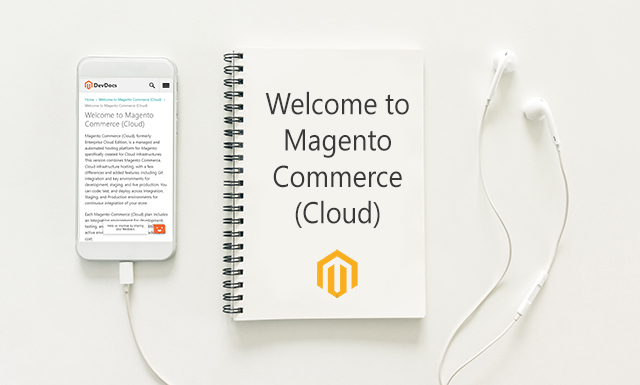
Magento Commerce (Cloud), formerly known as Magento Enterprise Cloud Edition, was introduced in early 2016 as Magento’s third platform option, alongside Magento Commerce and Magento OpenSource. For more information on the differences between Magento Open Source and Magento Commerce, reference this comparison. Magento Commerce (Cloud) is a managed, and automated hosting platform for Magento specifically created for Cloud infrastructures. Magento Commerce (Cloud) combines the power of Magento Commerce, Cloud infrastructure hosting, along with a few differences and added features.
Magento Commerce (Cloud) offers several features and advantages that set it apart from Magento Commerce and Magento Open Source.
The Difference Between Commerce (Cloud) and Magento Commerce
Although much of Magento Commerce (Cloud) and Magento Commerce are the same, there are a few fundamental differences. For one, Magento Commerce (Cloud) offers all the benefits of modern cloud computing: scalability, high resilience, PCI compliance, availability, automated patching – but also with the advantage of Magento’s successful and established architecture.
Cloud computing is possible because Magento Commerce (Cloud) runs on Amazon Web Services (AWS), which is known for its reliability, scalability, and low cost. Notably, with AWS powering Magento Commerce (Cloud), merchants can eliminate the need for self-hosting. Further, 30% of Magento Commerce merchants already utilize AWS for hosting. Therefore, Magento Commerce (Cloud) offers a natural hosting option for Magento Commerce merchants.
Also, Magento Commerce (Cloud) offers B2B features designed to boost B2B market capabilities. These capabilities help reduce the high implementation costs that can occur with multi-tenant Software-as-a-Service (SaaS) solutions, such as Magento Commerce. Specifically, there is generally less customization required with the Platform-as-a-Service (PaaS) cloud system. The Cloud flexibility allows merchants to tailor their technology quickly to what works best for their eCommerce business.
Magento Commerce (Cloud) Features
Magento Commerce (Cloud) comes with a variety of additional features that help set it apart from the other Magento platforms. A significant advantage for merchants using Magento Commerce (Cloud) is that it features fully customizable, secure and scalable Web storefronts. Scalable storefronts give merchants an opportunity to develop highly differentiated customer experiences.
Mark Lavelle, CEO of Magento, explained the importance of the scalability Magento Commerce (Cloud). Lavelle states, “With Magento Commerce (Cloud) merchants have the agility to respond to a rapidly changing environment, can continuously deploy innovations, easily scale to meet unexpected demand and don’t have to worry about the day-to-day management of infrastructure.”
Magento Commerce (Cloud) Features Overview
- Plans include an integration environment for development, testing, and integrating services
- All environments run with active Git branches of code
- Unlimited number of inactive Git branches available
- Add fully managed services like MySQL, Elasticsearch, Redis, RabbitMQ, without requiring external add-ons
- Increase the amount of memory and CPU as needed
Cloud Hosting with Magento Commerce (Cloud)
With cloud hosting, websites are lightning fast and optimized 24/7 for customers. Magento Commerce (Cloud) combines all of the functionality that Magento Commerce offers plus bonuses such as Git integration and key environments for development, staging, and live production. Specifically, merchants can code, test, and deploy across Integration, Staging, and Production environment for continuous integration in stores.
Magento Commerce (Cloud) hosting plans bring support and cloud-based hosting on a subscription basis. Currently, Magento offers the Magento Commerce Starter plan or Magento Commerce Pro plan. Merchants can choose the subscription that best fits their business while also enjoying the benefits of Magento Commerce.
Want to get started on Cloud or learn more? Contact us for more information on Magento Commerce (Cloud) and what sets it apart from other eCommerce platforms.